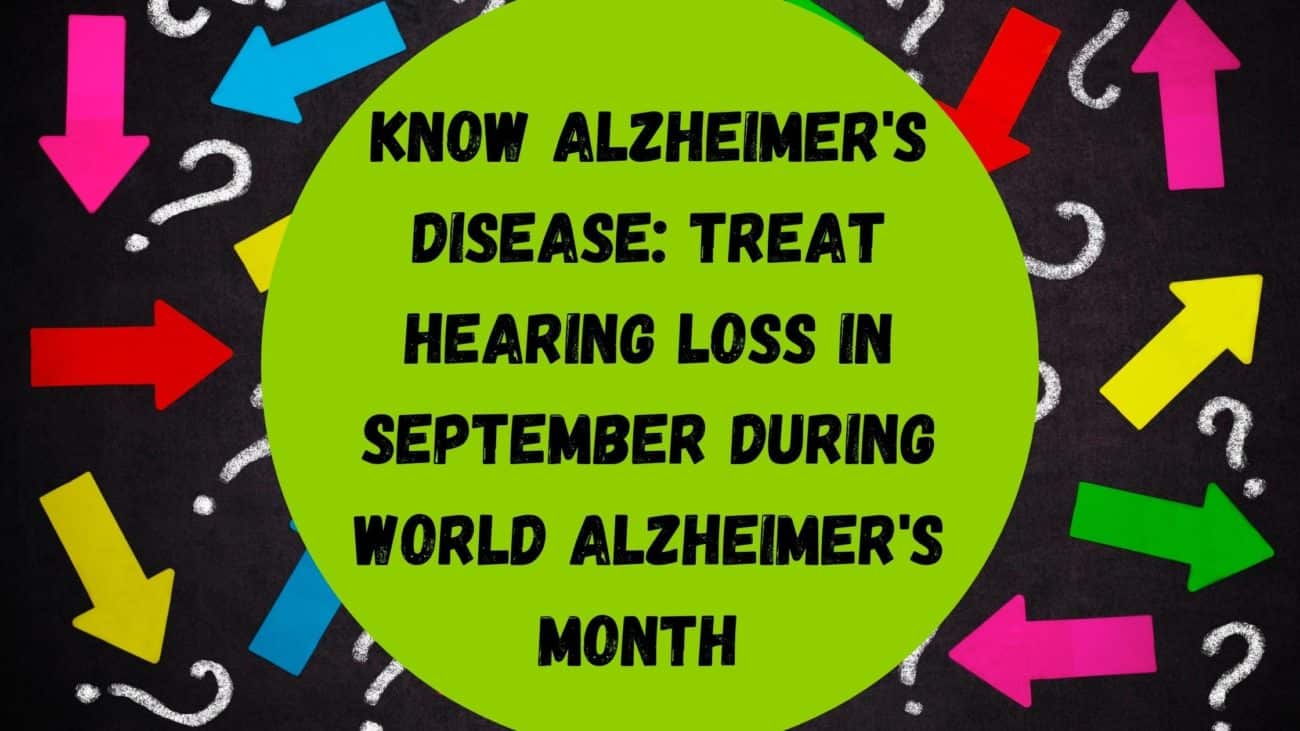- How Fast Can Hearing Loss Progress? - April 10, 2024
- Movie Enjoyment for Hearing Aid Users - March 13, 2024
- Predicting the Future of Hearing Healthcare - February 14, 2024
It’s normal to forget things every now and then. However, if you are reaching the age of 65 and feel like you are forgetting things more often, it could signify the onset of dementia. September is recognized internationally as World Alzheimer’s month, to raise awareness for this devastating neurodegenerative disease. This condition not only affects the 50 million or more individuals who struggle to remember the details of their life, but family, friends and whole communities. This condition only threatens to become more common, as 10 million new cases are diagnosed annually.
This September, take a moment to examine what you can do to help educate yourself and those around you about detection, prevention and harm reduction around Alzheimer’s and other forms of dementia.
The Early Signs of Alzheimer’s Disease
Spotting Alzheimer’s can be difficult as it often starts with simple memory loss. However, as symptoms progress, the results can be challenging for individuals and caregivers alike. Here are some of the early signs to look out for:
Memory Loss: Dementia will begin to cause problems recalling recently learned information, eventually affecting impact both short-term and long-term memory.
Confusion: It’s common for those affect to become easily get confused about dates and times. They may show up for an appointment at the wrong time and become confused as to what they should be doing.
Problem Solving and Planning: People at the onset of dementia will begin a project they have completed many times in a lifetime and forget how to do it halfway through the process. It’s common to forget a recipe they have completed for years, or directions to a place they know very well.
Language Problems: those affected may become confused halfway through a sentence because they forgot what they were going to say or fail to find a word they intended to use.
Losing Things: We all misplace our keys every now and then. If this starts happening more and more regularly it could be a sign of dementia.
How Untreated Hearing Loss Puts More Stress on the Brain.
While hearing loss occurs in the ears, it’s effects ultimately affect the brain. This is because the sounds collected in the ears must be sent to the brain to be processed. As less and less sound is transferred to the brain due to progressive hearing loss, puts more stress on the brain. Alzheimer’s and other forms of dementia are believed to be caused by damage to brain tissue which stops communication between brain cells. Any stress to the brain is believed to further the risk of dementia. An important study by researchers at Johns Hopkins University has even drawn links between an increased risk of hearing loss as hearing ability worsens. The risk was found to be double for those with mild hearing loss, while a moderate loss tripled the risk. A severe hearing loss was found to increase the risk of dementia 5-fold.
Why Hearing Loss Increases the Risk
There are three main theories as to why hearing loss could lead to Alzheimer’s disease:
Cognitive load: When the brain is putting energy towards decoding and maintaining speech, with less sound it takes away resources from other tasks like memory and thought.
Social isolation: When struggling to hear it can make people less socially active. It is a challenge to keep up with conversations in public and private settings. As a result, it often is easier to avoid social interaction which can lead to underactivity, loneliness, and chronic depression.
Brain atrophy: When people spend more time alone, their brains are less stimulated. Some studies have found that hearing damage could help to speed up atrophy in the sound processing core of the brain. These are the same areas of the brain which support the memory and senses, which can increase the risk of cognitive decline and Alzheimer’s disease.
Hearing Aids in the Fight against Alzheimer’s Disease
While there is no known cure for Alzheimer’s, researchers and physicians suggest that and active brain can increase cognitive function and improves emotional wellbeing. Hearing aids are believed to help because they amplify the sounds around you, relieving stress and communication issues. To find out if hearing aids are right for you, make an appointment today. The quality of your life could depend on it!

